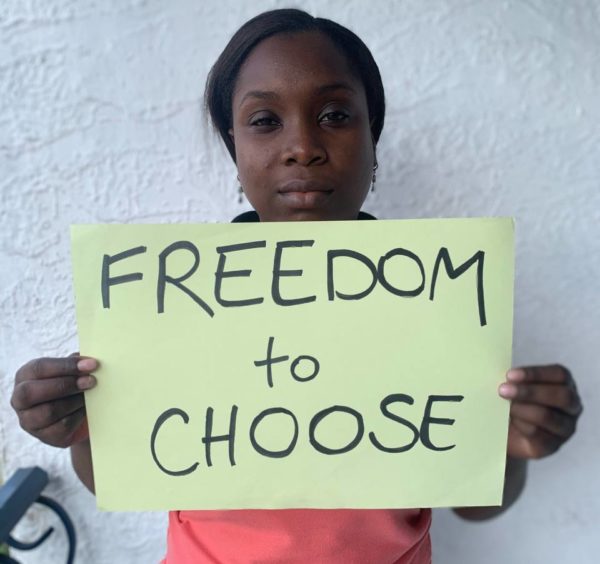On 24th June 2022, the US Supreme Court overturned Roe v Wade, removing the constitutional right to abortion for people who can become pregnant. This decision led to the implementation of trigger laws banning or restricting access to abortion in 13 states. Overturning Roe v Wade removed 50 years of precedent for the right to make decisions for your own body. This decision has devastating consequences for all in the US who can get pregnant, but especially for Black, Indigenous, and low socio-economic communities.
The basic facts about abortion
Every year millions of people make the decision to end a pregnancy – 1 in 4 pregnancies end in abortion every year.
Criminalising abortion does not stop abortions. It only anyone with the capacity for pregnancy from access to safe and legal abortions. Banning abortions only forces people to resort to clandestine, risky abortions. It is estimated that 25 million unsafe abortions take place each year, most of which are in developing countries. Recent studies estimate that 8-18% of maternal deaths worldwide are due to unsafe abortions in countries where it is banned.
Furthermore, criminalising abortions restricts access to vital post-abortion care for any complications that may arise, and further endangers the lives and safety of those who have to resort to such procedures.
“I had a friend who called me to pick her up at a motel. The person [who gave her an abortion] punctured her uterus and she bled to death. There were many who died like that. I do not want that to ever happen again”
– Anonymous
Why is abortion a human right?
Restrictive abortion laws violate a women’s right to bodily autonomy, to health, to privacy and to be free from discrimination. All the above are fundamental human rights.
Forcing someone to carry a pregnancy to term strips them of their right to make decisions about their own body.
ActionAid Australia firmly believes that everyone has the right to make their own decisions about their body, and their own decisions about if and when to have children.
Safe, legal and affordable abortion care is vital for upholding basic human rights.
Abortion in Australia
Abortion in Australia is legal. Abortions have been decriminalised in all jurisdictions, the most recent being South Australia in July 2022. However, access to this vital medical care remains a postcard lottery.
This is especially true for regional Australia, where only 10% of GPs are registered to perform abortions. In more rural and remote areas, this drops to less than 1%, whichdisproportianately affects First Nations people living in remote communities.
Medicare-funded abortion care is also inaccessible in all parts of the country, meaning that many people have to pay hundreds or thousands of dollars to receive the medical procedure. This financial cost further burdens those who already have restricted access to abortion, or who have temporary visas and no access to Medicare.
How can you support the fight for reproductive justice in Australia and abroad?
Hope is not lost.
Over the last 25 years, 60 countries have changed laws to allow greater access to abortions and reproductive healthcare, including Ireland, South Korea, Argentina, Mexico, Colombia, Benin, and Democratic Republic of Congo. As recently as 2018, the Irish public voted to repeal a near-total constitutional ban on abortion.
While the overturn of Roe v Wade in June felt like a devastating, catastrophic and unimaginable moment for women’s right to reproductive justice and healthcare, women’s movements around the world have come together in recent weeks to protest the decision and announce to the world that we will continue to fight for reproductive justice and the right to abortion for all.
At ActionAid, in June, we joined protests in Perth and Sydney, standing in solidarity with anyone who can get pregnant in the US and other countries where the right to abortion is restricted.

This week (25-29th July 2022), we’ve joined ActionAid offices across the world in a Reproductive Justice week of Action to demand that anyone who can get pregnant has the right to:
- Make informed choices about whether or when they have children.
- Access a full range of medical care and family planning services free from criminalisation, punishment, or harassment by the state, institutions and individuals.
- Access accurate information and services regarding sexual and reproductive healthcare with full protection of their privacy.
You can join us in taking action by sharing our demands on Instagram or retweeting on Twitter.